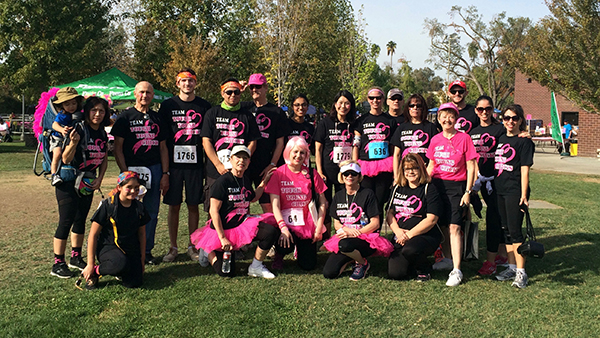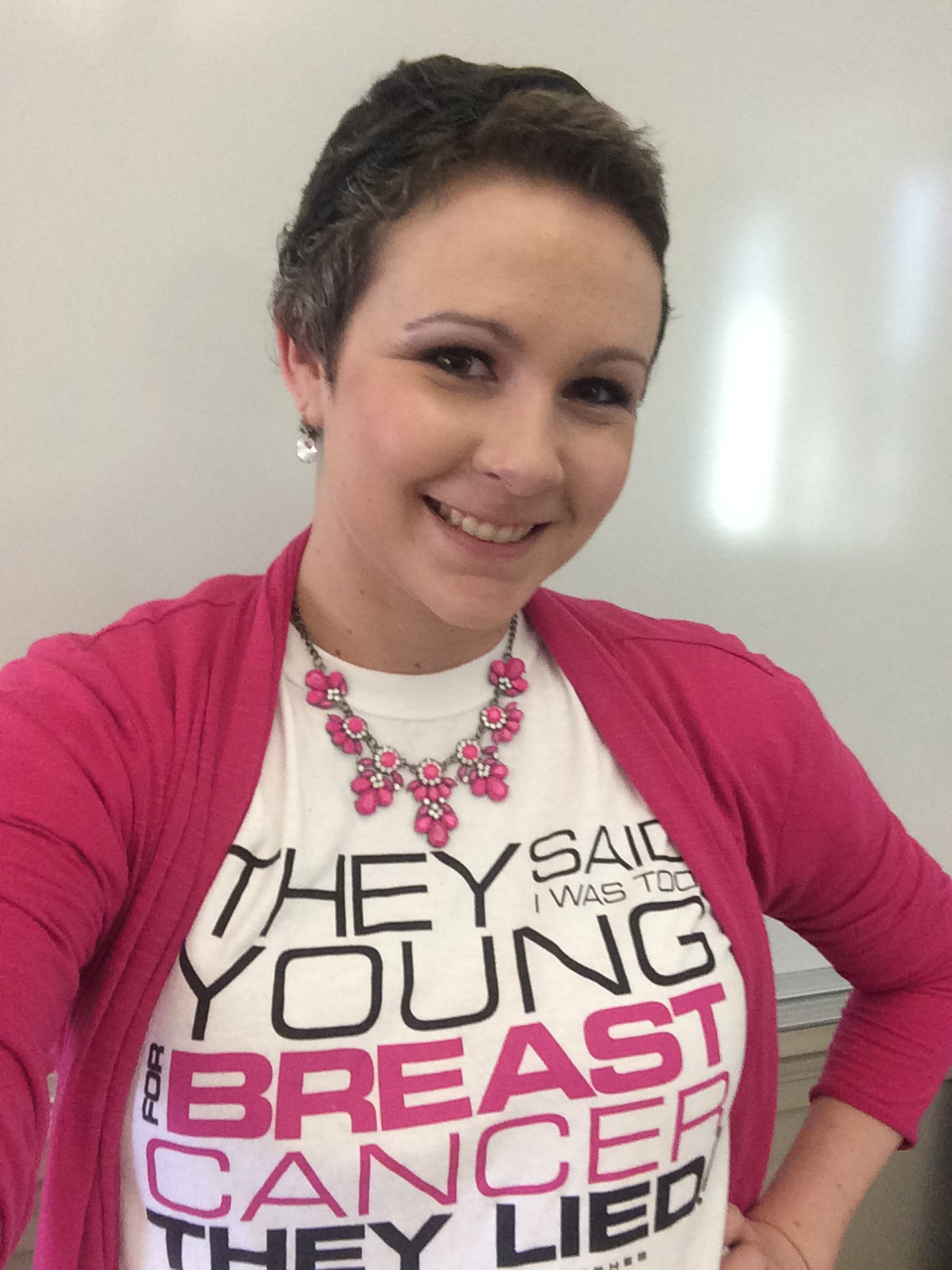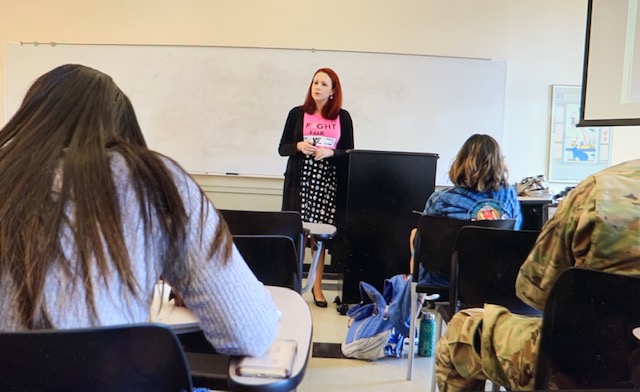In fall 2014, Dr. Jenna Kieckhaefer began her career as an assistant professor in the criminology department at Fresno State and was excited to move back to California from Florida where she went to graduate school.
“You dream about whatever your job is going to be whenever you’re done with school, and for me that was a long time with regular school, undergraduate and graduate, and then you finally get offered a position and you accept it. I was very excited,” said Kieckhaefer.
But unbeknownst to her, the excitement would be followed by the most challenging time of her young life.
Kieckhaefer, who was 28-years-old, had settled in at Fresno State and began teaching courses in forensic behavioral sciences, including psychology of criminality, research methods, ethics and interviewing and interrogation. Two months later, her health insurance kicked in so she decided to get a check-up.
The doctor told her everything seemed normal. However, because tests were previously completed in Florida the doctor decided to order them here, which resulted in an ultrasound and a biopsy of her right breast. A week later, she was given the results that changed her life.
“I walk in and the doctor says it’s not good news, you have breast cancer and I thought it was a joke. I thought it had to be a joke, but then I started balling. What does that mean?” Kieckhaefer said. “What does it mean for my job and how am I supposed to do what I assumed goes with cancer treatment and keep my job?”
But she did. That same week she met her oncologist, radiologist, surgeon and genetic tester who laid out a plan — chemotherapy, surgery to rid the cancer, radiation and more tests.
“I continued to teach though I don’t know how, I guess. I mostly covered my classes but towards the end I had so many appointments, people were helping me cover my classes to help me get through the semester,” Kieckaefer said.
The following semester, she continued to teach while on chemo for five months.
She did not know how long she had cancer, but it had grown from her breasts to her lymph nodes. She had a single mastectomy of her right breast and was put on hormone blocking therapy for five years. This year, as she completed that five-year mark, she was told it was extended to 10 years.
“It’s tough when you have to do that and you’re reminded the reason is because we want you to stay alive, and that could possibly mean that I don’t,” Kieckhaefer said. “It’s hard to argue with that, but it’s still disappointing when you’re trying to be a normal person my age, but not for a while, I guess.”
But through it all, she remains strong and positive. For the past five years, she has shared her story with students because she wants them to know the illness can happen to anyone, to be aware that some things are outside of their control and that they must take their health seriously.
This month, Kieckhaefer wears pink every day for Breast Cancer Awareness Month. To her, it means people are thinking about breast cancer, and she hopes it equates to people examining themselves.
Through her experience, she has discovered a whole new family in Fresno. She found support in community organizations and groups for breast cancer patients and survivors and is involved in many groups and events.
And she lives her life with hope, strength and love.
“I’m proud to be a survivor,” Kieckhaefer said. “That I made it through, and I did, and am still doing everything that I can to stay this way.”
|




